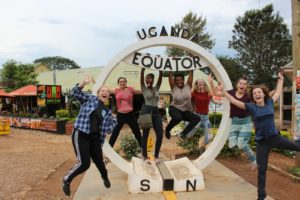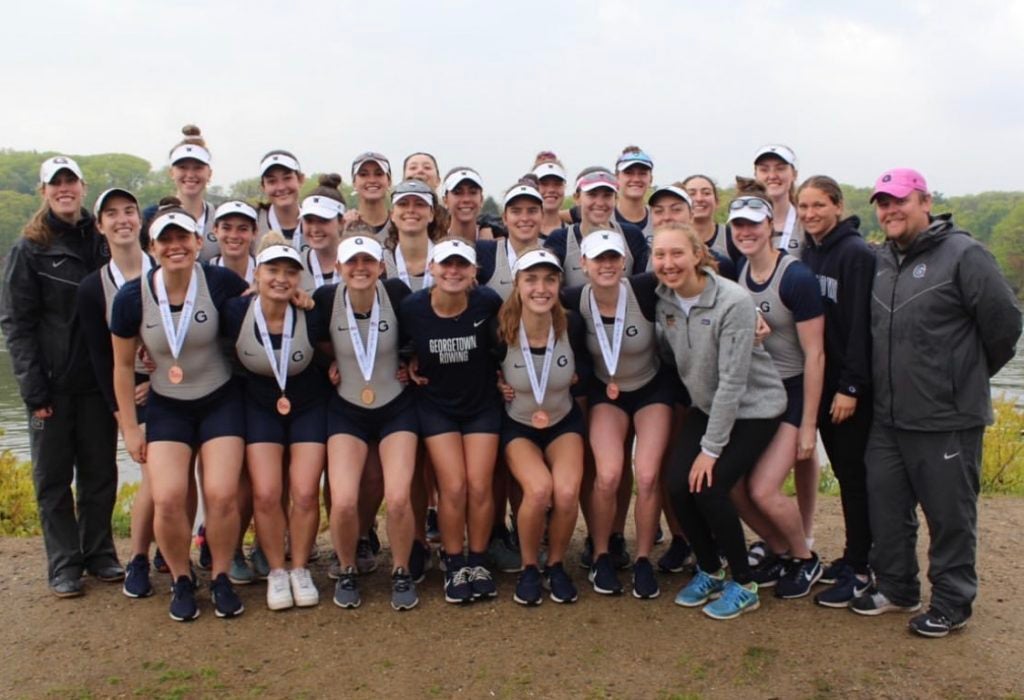The work ethic extends to their academic pursuits as well. As International Politics majors, the three have studied various aspects of foreign relations through classes, internships and research opportunities. Sabik spent a summer interning at the U.S. Department of Commerce, and Schalit traveled to Uganda for a semester abroad last fall.
Sabik remembers being able to apply knowledge she learned in class during her internship. “Instead of debating the theoretical impact of international trade, I calculated the actual impact my specific program had on U.S. GDP. I also worked with leading business leaders from Eurasia,” she says, and “learned more about their business culture and proceedings than I could have learned from reading a book.” Part of the reason for experience such as these, Sabik says, are because of Washington D.C.’s place as the nation’s political hub, which allows for “connections in fields that I’m interested in (government, international relations).”
Schalit remembers her experience in a humanitarianism class, which taught her that humanitarian actions are not always wholly positive. The class culminated in a final project for which Schalit created a website detailing the potential negative impacts of short-term volunteer trips abroad and gave advice on better ways to create a positive impact.

Schalit’s global engagement continued with when she studied abroad in Uganda through the School for International Training. One of the most interesting topics for her was Uganda’s refugee policy; Uganda has the third-most refugees in the world, but Schalit says, “[It] still has a fairly welcoming refugee policy that gives refugees freedom of movement, the right to education, healthcare, and work, and gives each family a plot of land to use for subsistence.”
In addition to lectures about development in Uganda, research methods and ethics and language instruction, Schalit spent six weeks on an independent field research project. Assisted by an organization called Windle Uganda, an NGO committed to providing access to resources to refugees and others affected by conflict. “I spent three of the six week research project conducting interviews with secondary school students, teachers, parents and organizations in Kiryandongo Refugee Settlement in Central Uganda,” she says. Through these interviews and other research, Schalit was able to build a clearer picture of the barriers to secondary education for Ugandan refugees.



